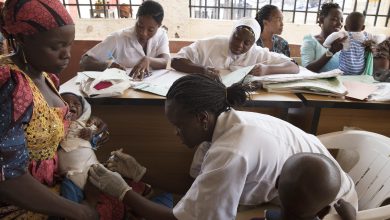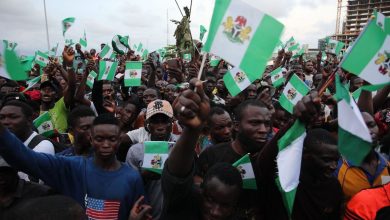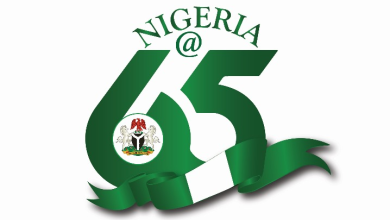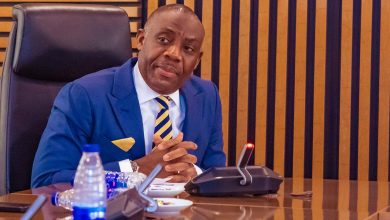Democracy Day 2025 A Celebration or a Call to Action?
As Nigeria prepares to commemorate its 2025 Democracy Day on June 12, the atmosphere feels heavy with contradiction. The Federal Government has inaugurated an Inter-ministerial Committee to coordinate a week-long lineup of celebratory events, marking 26 years since the nation returned to civilian rule in 1999. But beyond the official fanfare and grand pronouncements lies a deeper, more pressing question what exactly are we celebrating?
The decision to move Democracy Day from May 29 to June 12, initiated in 2018, was a symbolic gesture meant to recognize the sacrifice of Chief MKO Abiola and countless Nigerians who stood against military dictatorship during the June 12, 1993 presidential election saga. That election remains one of the freest and fairest in Nigeria’s history, even though it was annulled. However, while the change in date honored the spirit of democracy, many citizens argue that the soul of democratic governance in Nigeria remains largely unfulfilled.
This year’s planning committee is chaired by Senator George Akume, although the inauguration was handled by Minister of Budget and Economic Planning, Atiku Bagudu. Bagudu spoke on the occasion, highlighting the event as a platform for government to present its achievements and renew its social contract with the people under the “Renewed Hope” agenda of President Bola Tinubu. The optimism in his words was unmistakable but is it shared by the average Nigerian?
Therein lies the crux of the issue. While the machinery of government prepares for press briefings, religious services, youth forums, and a presidential broadcast, many citizens are grappling with harsh realities that seem to contradict the very idea of democratic progress. For too many, democracy has yet to deliver its most basic promises: economic opportunity, security, justice, and dignity.
A recent case in Lagos underscores this disconnect. Just days after the government warned residents against indiscriminate refuse dumping, five individuals were arrested for defying the directive and are now facing legal action. Lagos State Commissioner for the Environment, Tokunbo Wahab, rightly condemned the act and reiterated a zero-tolerance stance. But the situation reveals a larger failure in the system: why do citizens continue to disregard civic directives? Is it merely lawlessness, or is it a symptom of deeper frustrations with the state’s inability to provide clean, safe, and livable environments?
Lagos is often touted as a benchmark for state-level governance, yet if such a state struggles with enforcing basic environmental laws, what does that say about the broader health of Nigeria’s democratic institutions? Democracy isn’t just about holding elections it’s about ensuring the rule of law, public accountability, and functional infrastructure. When these are absent, celebrations ring hollow.
Adding emotional depth to the week’s agenda is the recent death of Professor Jibril Mohammed Aminu, a former minister, academic, and statesman. President Tinubu paid tribute to Aminu, calling him a patriot and exemplary leader. His passing should serve as a moment of national introspection. Are our current leaders striving to leave legacies of such integrity? Or have political officeholders become more consumed with optics than outcomes?
If this year’s Democracy Day is to be more than just a national holiday, it must act as a mirror and a motivator. The Nigerian government must demonstrate that it understands the burden of leadership and the urgency of the people’s needs. Speeches, no matter how eloquent, cannot replace meaningful action. The “Renewed Hope” mantra must be backed by policies that uplift the nation from hardship and restore public confidence in democratic institutions.
Here are several key areas where real change must occur:
- Economic Resuscitation
The rising cost of living, fueled by inflation and currency instability, has crippled household incomes. Government must prioritize job creation, empower small businesses, and tackle the high cost of food and energy. - Transparent Governance
Citizens deserve clarity on how public funds are being spent. The Federal Government must present honest, detailed scorecards not selective achievements. - Environmental Reforms
Beyond arrests, there should be systemic environmental management strategies that include waste recycling, public education, and infrastructure improvement. - Equal Application of Justice
The law must apply equally to both the elite and the ordinary citizen. True democracy cannot exist in a system where some are above accountability. - Youth Inclusion
Engaging young people must go beyond symbolic appointments and photo ops. They need to be given real decision-making roles and platforms for innovation and policy influence. - Respect for Rights and Freedoms
A democratic government must protect the rights to free expression, peaceful assembly, and dissent. Clamping down on opposition or civil society only weakens democracy further.
As June 12 draws near, Nigerians must reflect not only on how far the nation has come but also on the long journey ahead. The streets may be decorated, and official statements may laud Nigeria’s democratic endurance, but the true measure of progress lies in the everyday experiences of citizens whether they feel heard, safe, and empowered.
If Democracy Day 2025 is to mean anything, it must spark more than pride it must spark progress. It must become a turning point where leaders recommit to governance that is people-centered, transparent, and just. Only then can the Nigerian people look to the future not with weary skepticism, but with real, renewed hope.



